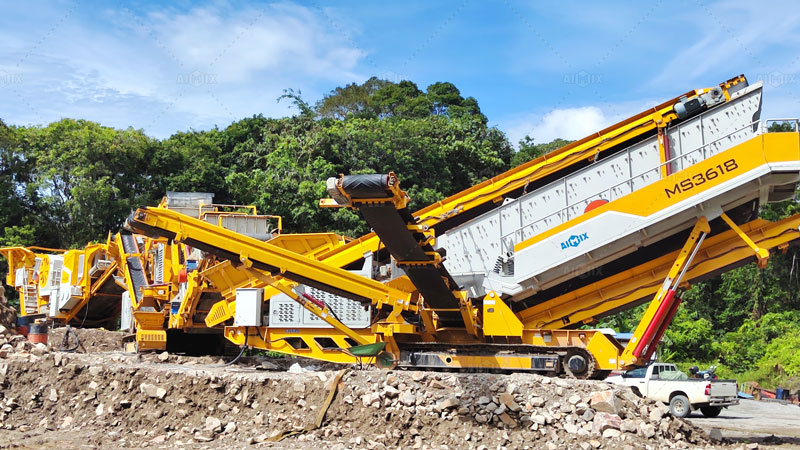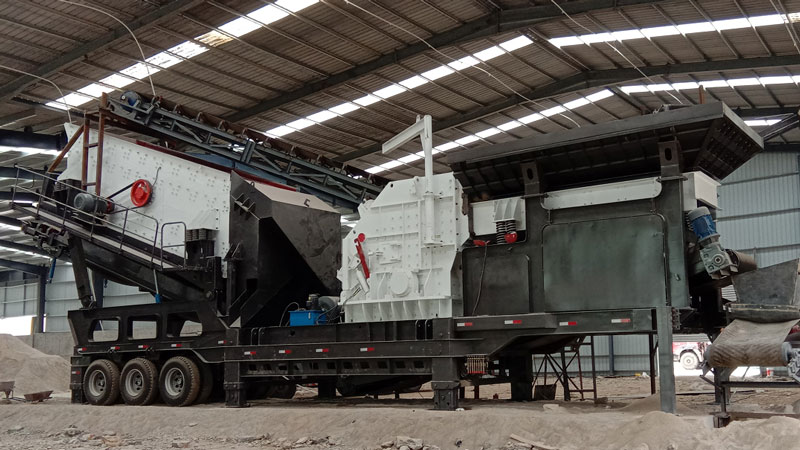Mobile stone crushers are a vital part of modern mining and construction industries. Their ability to process rock efficiently has made them highly sought after for various projects, such as quarrying, road building, and recycling. Understanding the capacity of a mobile stone crusher is essential for selecting the right equipment for your needs. In this article, we will explore the factors that influence the capacity of mobile stone crushers and provide insights into how they process rock efficiently.
Understanding the Capacity of a Mobile Stone Crusher
The capacity of a mobile stone crusher(trituradora de piedra movil) refers to the amount of rock it can process in a given time frame, typically measured in tons per hour (TPH). Several factors determine this capacity, including the type of rock being processed, the size of the crusher, and the crusher’s design. A mobile stone crusher can be a significant asset in reducing the size of large rocks and turning them into usable materials, but it’s essential to consider all these factors to choose the right equipment for the job.

Factors Affecting the Processing Capacity
The capacity of a mobile stone crusher depends on various elements that influence how efficiently it can break down rock. Let’s take a closer look at these key factors:
1. Type of Crusher
Different types of crushers are used in mobile stone crusher plants, and the type you choose will significantly impact its capacity. The three main types of crushers(chancadora de piedra) used in mobile stone crushers are:
- Jaw Crushers: These crushers are typically used for primary crushing and have a high processing capacity. They are capable of handling large rocks and reducing them into smaller sizes.
- Impact Crushers: Often used for secondary or tertiary crushing, these crushers are ideal for producing fine aggregates from softer rocks.
- Cone Crushers: Used for secondary and tertiary crushing, cone crushers are efficient at processing harder rocks and producing uniform sizes of aggregate.
2. Type of Rock
The hardness and abrasiveness of the rock being processed play a crucial role in determining the crusher’s capacity. Softer rocks, such as limestone, are easier to crush and can be processed in larger quantities compared to harder rocks like granite or basalt. Harder rocks require more energy to break down, which can reduce the overall throughput of the crusher.
3. Feed Size and Material Distribution
The size of the feed material and its distribution also impact the capacity of a mobile stone crusher. A crusher with a larger feed opening can accommodate bigger pieces of rock, which increases its processing capacity. Additionally, uniform material distribution helps the crusher operate efficiently by ensuring an even flow of material through the machine.
4. Crusher Design and Features
Modern mobile stone crushers are designed with features that enhance their efficiency. For example, crushers with a high reduction ratio can break down large rocks into smaller, more manageable sizes, improving throughput. Furthermore, crushers with advanced features like hydraulic systems can optimize operations by adjusting settings based on the material being processed.
Typical Capacities of Mobile Stone Crushers
Mobile stone crushers come in various sizes, and their capacity can vary significantly depending on the model and type of crusher. However, we can provide some general estimates of processing capacities for different types of crushers used in mobile stone crusher plants:
1. Mobile Jaw Crusher
Mobile jaw crushers are commonly used for primary crushing in stone crusher plants(planta chancadora). They have a relatively high capacity and can process between 50 and 800 tons per hour (TPH), depending on the size of the jaw crusher. A jaw crusher with a larger feed opening will generally be able to handle more material. For example, a 600mm jaw opening can process up to 300 TPH, while a 1,200mm opening can process over 500 TPH.
2. Mobile Impact Crusher
Mobile impact crushers are more commonly used for secondary or tertiary crushing. They typically have a capacity range of 100 to 500 TPH. While they may not process as much material as jaw crushers, they are more efficient for producing finer aggregates from softer rock materials like limestone and sand.
3. Mobile Cone Crusher
Mobile cone crushers are effective for secondary and tertiary crushing stages. They generally have a processing capacity between 150 and 600 TPH. The capacity of a mobile cone crusher largely depends on the size of the cone and the material being processed. Cone crushers are ideal for producing high-quality aggregates from medium to hard rocks.

Optimizing the Capacity of a Mobile Stone Crusher
To maximize the capacity of a mobile stone crusher, there are several strategies you can implement:
1. Proper Maintenance
Regular maintenance is essential for ensuring that the crusher operates at peak efficiency. This includes checking for wear and tear on the components, lubricating moving parts, and replacing worn-out parts before they cause breakdowns. A well-maintained crusher will run more smoothly and with higher capacity.
2. Consistent Feed Size
Providing a consistent feed size allows the crusher to operate more efficiently. If the material is too large, the crusher may become clogged, reducing capacity. On the other hand, if the material is too fine, it may not be processed properly, resulting in lower output. Ensuring a balanced feed size will help maintain a steady flow of material through the crusher.
3. Selecting the Right Crusher for the Job
Choosing the right type of mobile stone crusher for your project is essential. If you’re processing softer rocks with rock crusher(trituradora de rocas), an impact crusher may be more suitable, while harder rocks may require a jaw or cone crusher. Additionally, selecting the right crusher based on the material size and desired output can significantly improve processing efficiency and capacity.
Conclusion
The capacity of a mobile stone crusher to process rock depends on multiple factors, including the type of crusher, the hardness of the rock, feed size, and maintenance practices. Whether you’re using a jaw, impact, or cone crusher, selecting the right equipment for the job and maintaining it regularly can significantly increase the efficiency and throughput of your stone crusher plant. By understanding these factors, you can optimize your mobile stone crusher to meet your production goals and ensure high-quality aggregates for your construction or mining projects.
